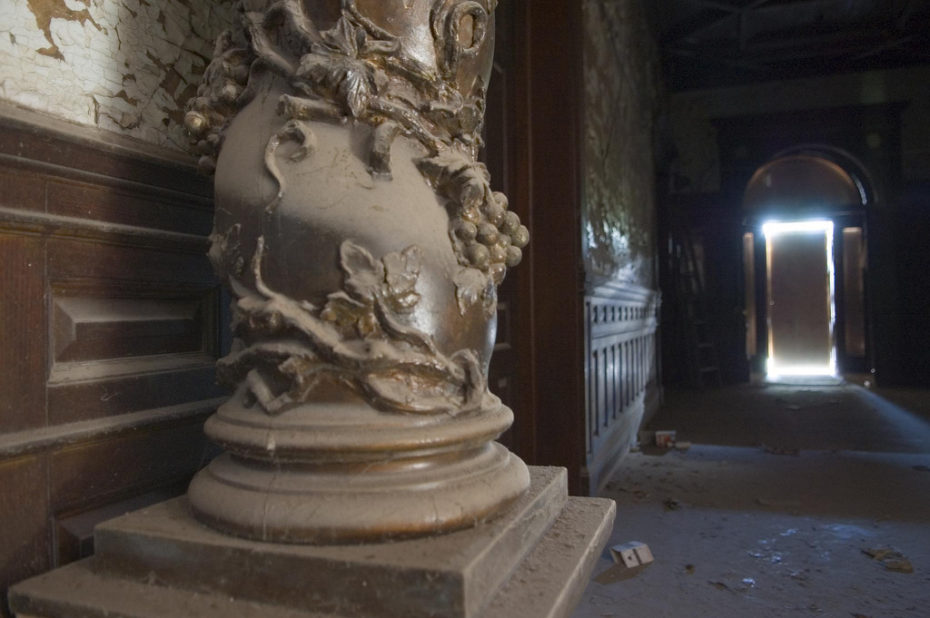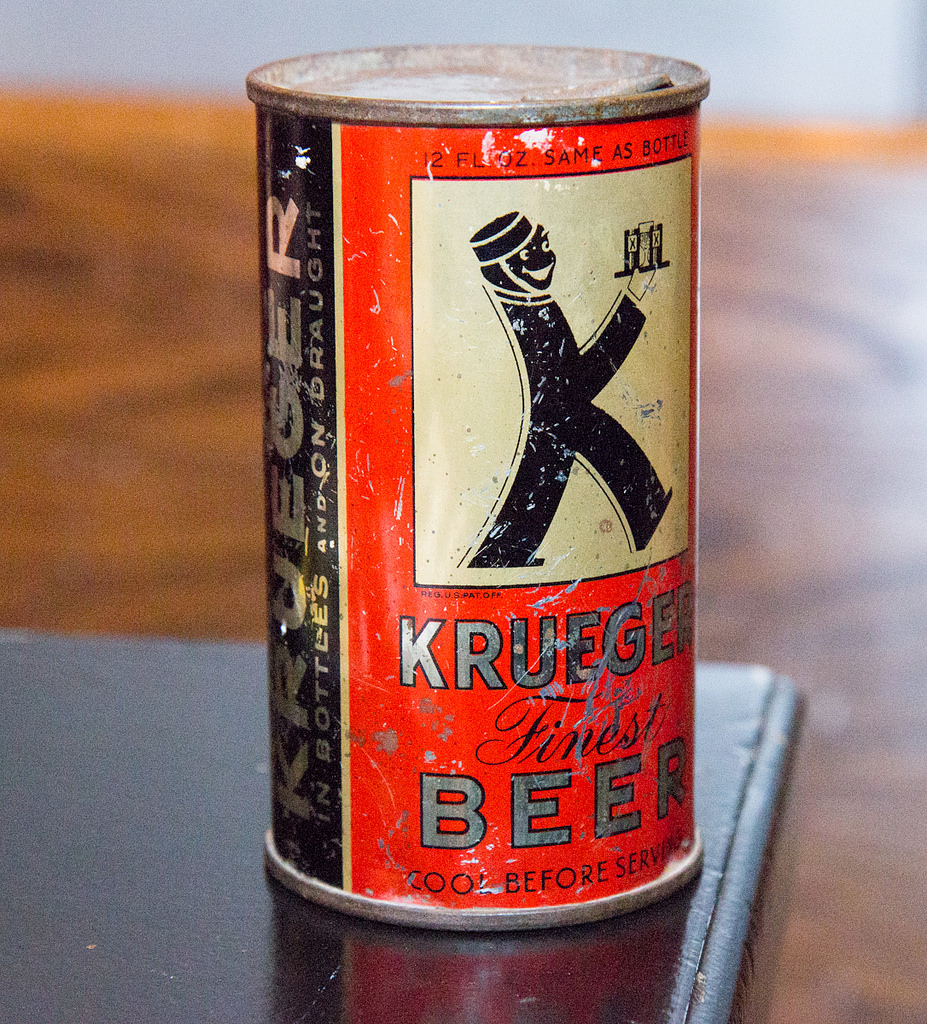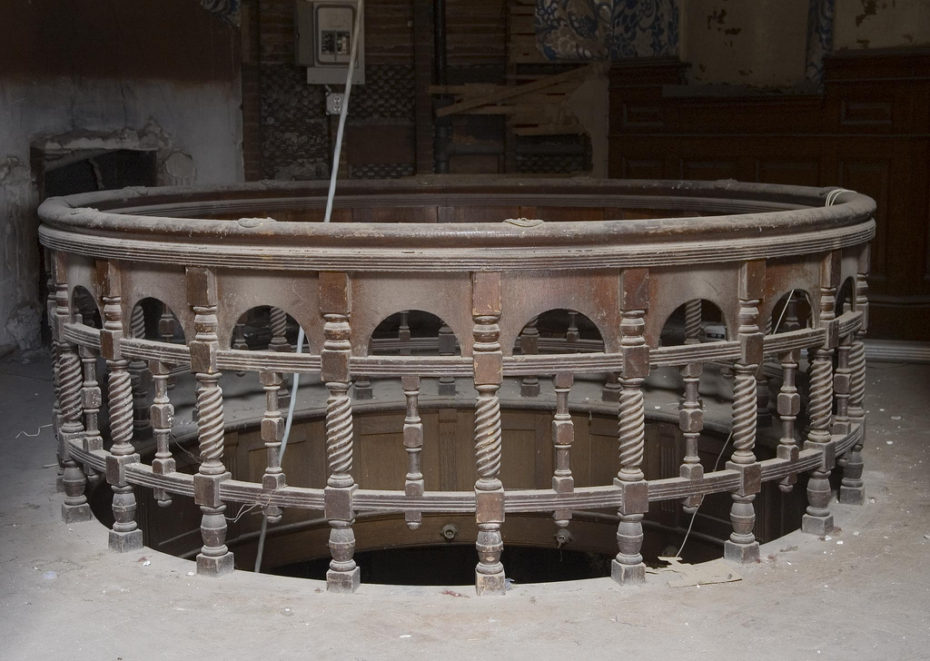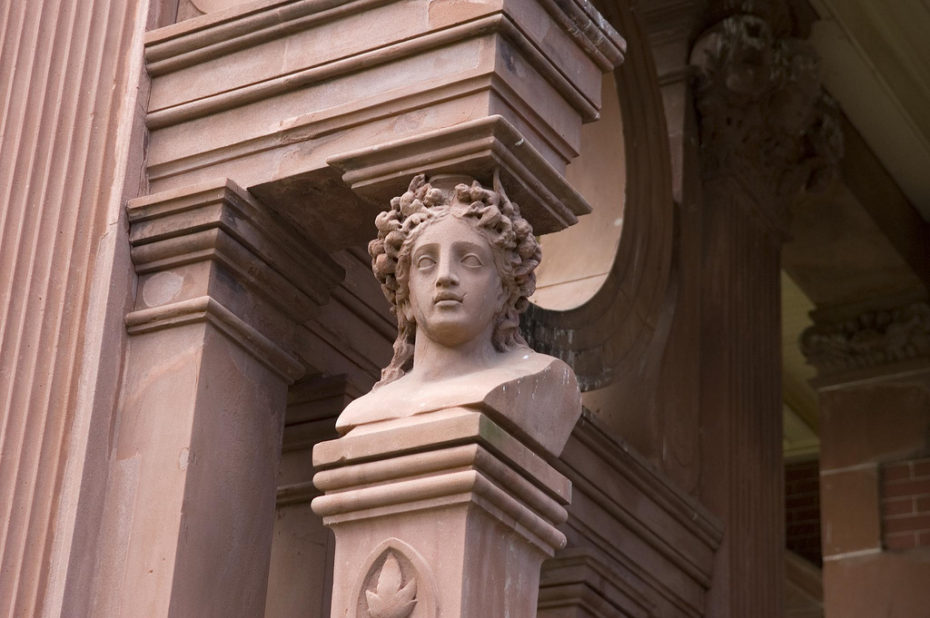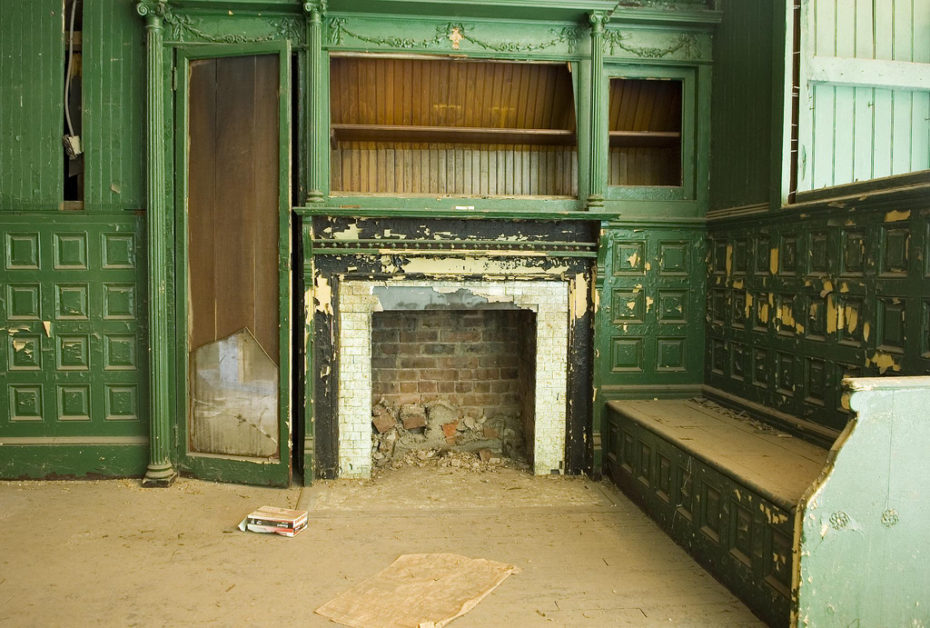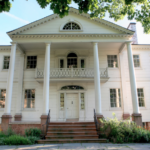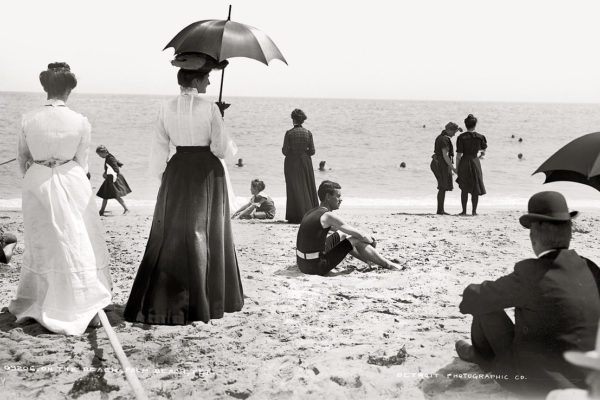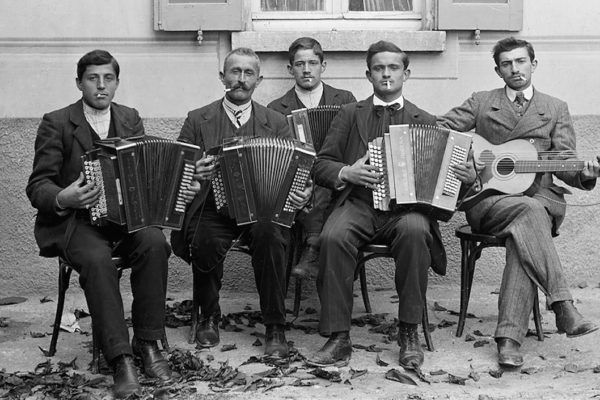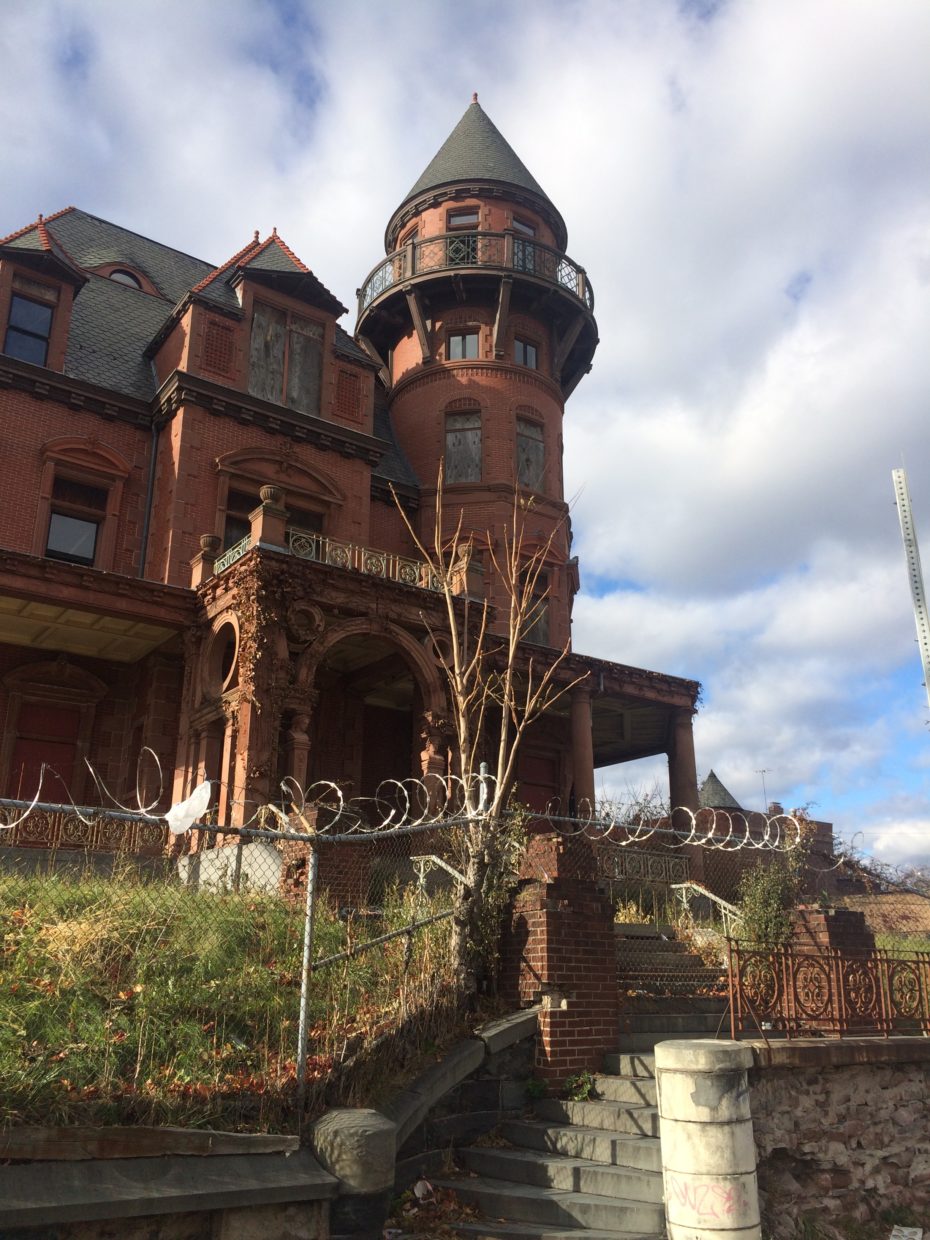
The once ornate staircase that leads to the crumbling mansion, is cracked and falling apart. The old, sculpted gardens have been over run with weeds, surrounded by fences of razor sharp barbed wire. Its once grand spires and turrets overlook a landscape of forbidding housing projects and the desolate lots of one of America’s most notorious and violent cities. We are standing outside the imposing, former home of Gottfried Krueger, once one of the grandest mansions to be found in Newark, New Jersey. But today, it lies abandoned, slowly decaying like a latter day Manderlay.
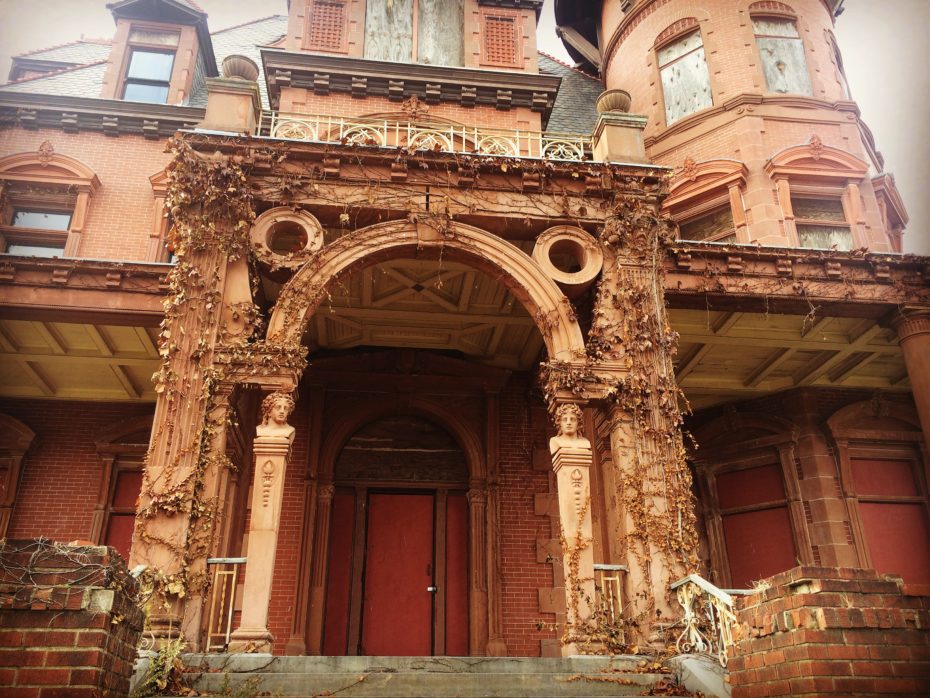
©Luke J Spencer
Gottfried Krueger was an immigrant from Germany, who made his fortune brewing beer. As the millions of immigrants flowed from Europe into America, mostly through Ellis Island, the demand for old English style ales was replaced with a demand for lighter, European lagers. Krueger was one of the many, wildly successful brewers that flourished meeting that demand. His beer was the first in America to be sold in cans, and by 1875, Krueger was producing over 25,000 barrels a year.
With his new found wealth, Krueger decided to build a grandiose, opulent mansion on what is today the corner of Dr. Martin Luther King Jr. Boulevard and Court Street. Back then the boulevard was known as High Street, a two mile long grand avenue, that wouldn’t have looked out of place in Haussmann’s Paris. Grand homes made of marble and granite graced a wide boulevard lined with graceful oak trees, that flowed like a river of wealth through Newark, itself a blossoming city, thriving on booming industry that followed the North’s victory in the Civil War.
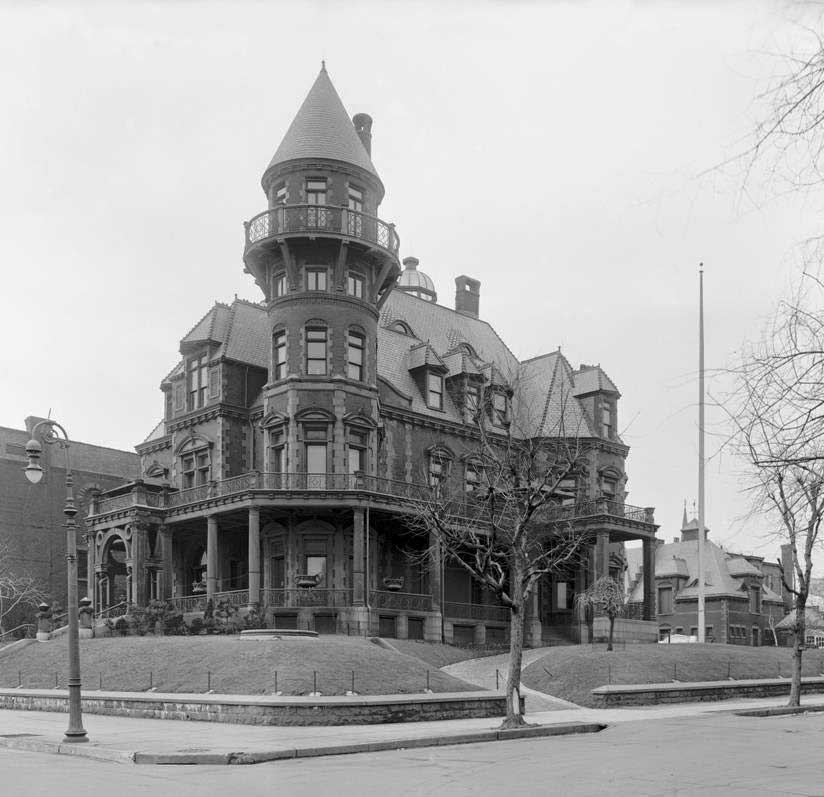
©NJ Historical Society
But of all the mansions on High Street, none were as luxurious as the Krueger home. It had forty rooms, the first privately owned elevator in New Jersey. Archival photographs show the mansion’s opulent Louis XIV interior, its stained glass windows, and leather embossed walls glittering with mother-of-pearl wainscoting.

©NJ Historical Society
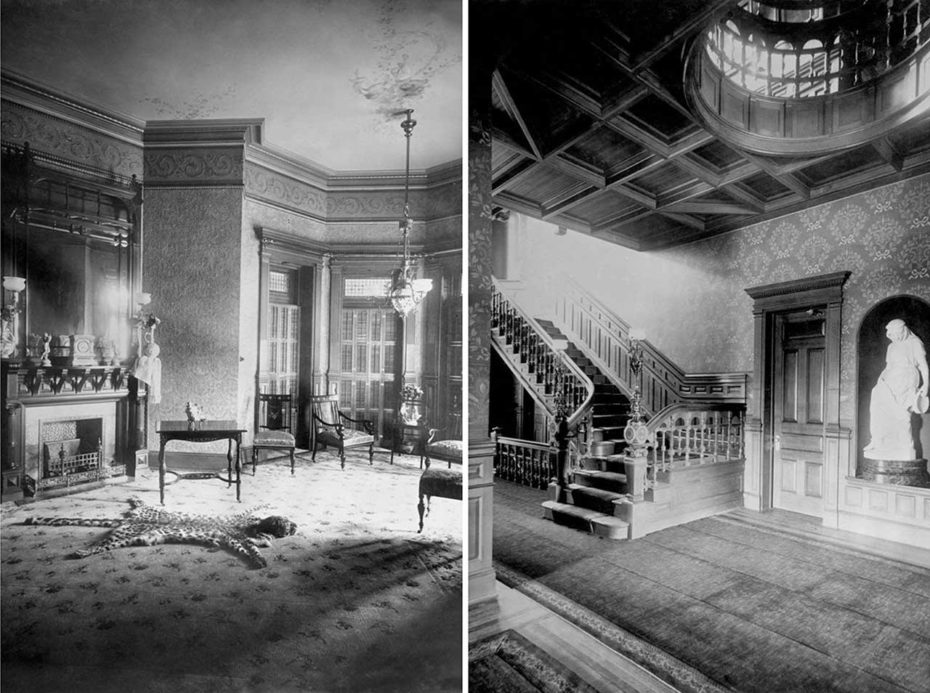
©NJ Historical Society
Five stories high, it was topped with a copper domed turret, that dominated the skyline. Its medieval spire would have been at home atop a castle from Kruger’s native Rhineland.
But business would eventually come to a halt for Krueger family. Faced with the twin perils of anti-German sentiment during World War I, and Prohibition, Krueger Beer would swiftly disappear from the hotel bars and beer halls of the North East.
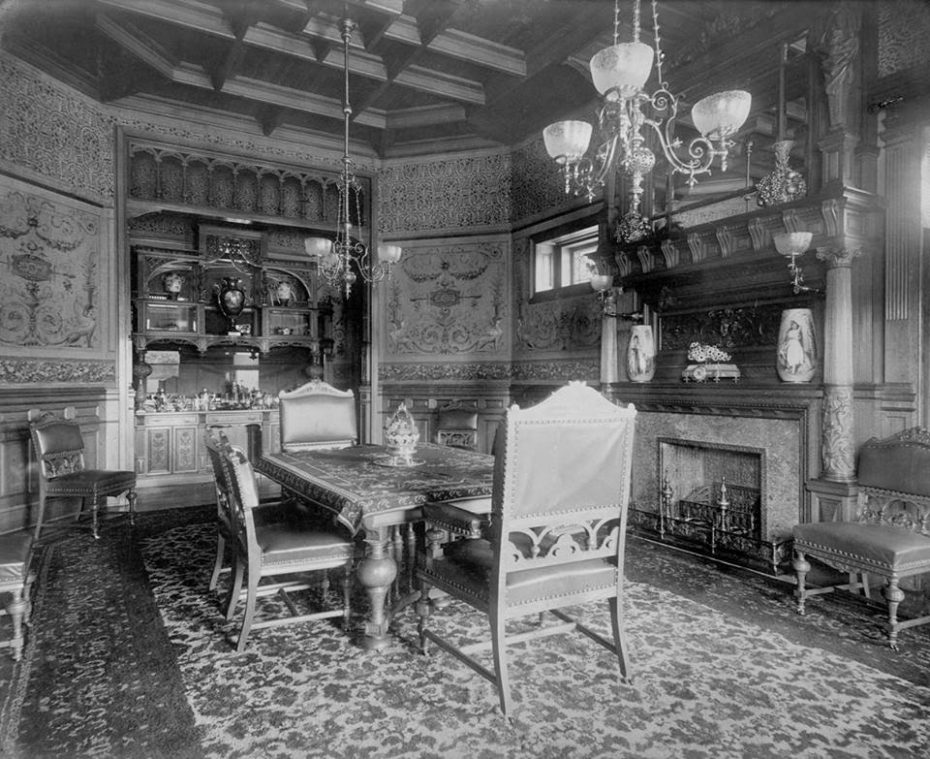
©NJ Historical Society
The mansion was sold in 1926 to a fraternal society, the Newark Scottish Rites for $100,000. But the grand manse would grow in stature; the masonic society adding a 700 seat, lavish auditorium onto the house.
In 1958, Louise Scott, owner of a beauty school, purchased the mansion. She ran the school out of the lower floors, whilst she lived in the rooms above. Scott’s school thrived, and she is thought to be the first female African-American millionaire in New Jersey.
But when Scott died in 1982, the imposing mansion passed to the City of Newark, where it has laid abandoned ever since.
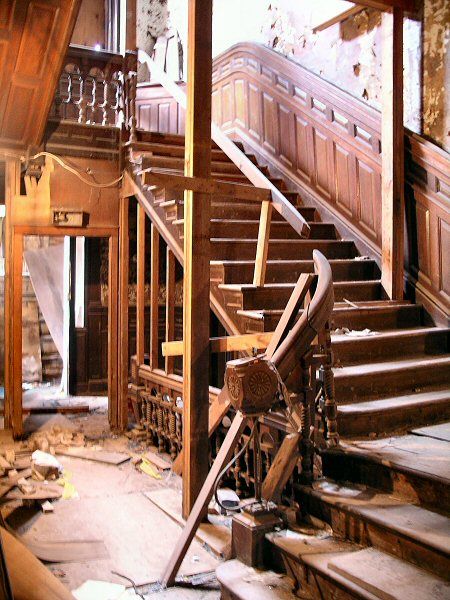
©Anonda Bell
In many ways, the fate of the Krueger-Scott mansion mirrors the declining fortunes of Newark itself. Once a thriving, industrial city, the gradual loss of its manufacturing bedrock saw the city swiftly deteriorate into one of America’s most impoverished and violent cities. Rampant unemployment and crime came to a bloody head in 1967 with riots that brutally descended into all out street war, with twenty six people killed.
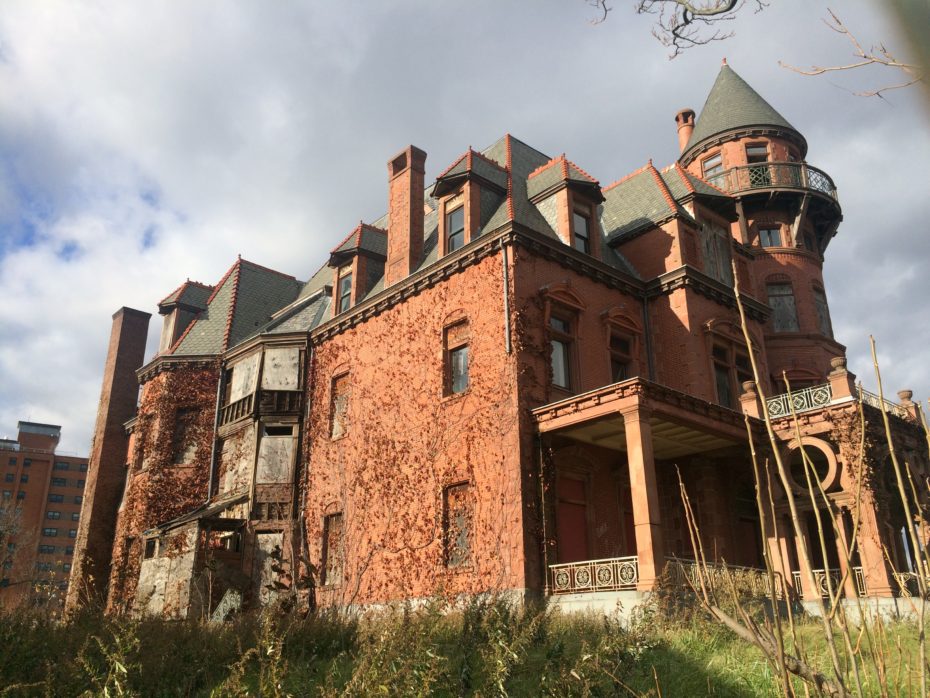
©Luke J Spencer
As more and more professional and working classes fled the city, an onslaught of drugs, crime, and one of the highest murder rates in the US saw forbidding housing projects replacing the many grand Victorian town houses of the past.
The Krueger mansion however was slowly allowed to crumble to pieces. Today it lies vacant, its once lavish interiors, ravaged by looters and vandals.
Ambitious plans to turn the empty mansion into a cultural centre celebrating Newark’s African-American heritage came to nothing, despite millions being spent on shoring up the decaying building. Eventually, the City Council, fighting a desperate war on poverty and crime, refused to spend any more money on the project.
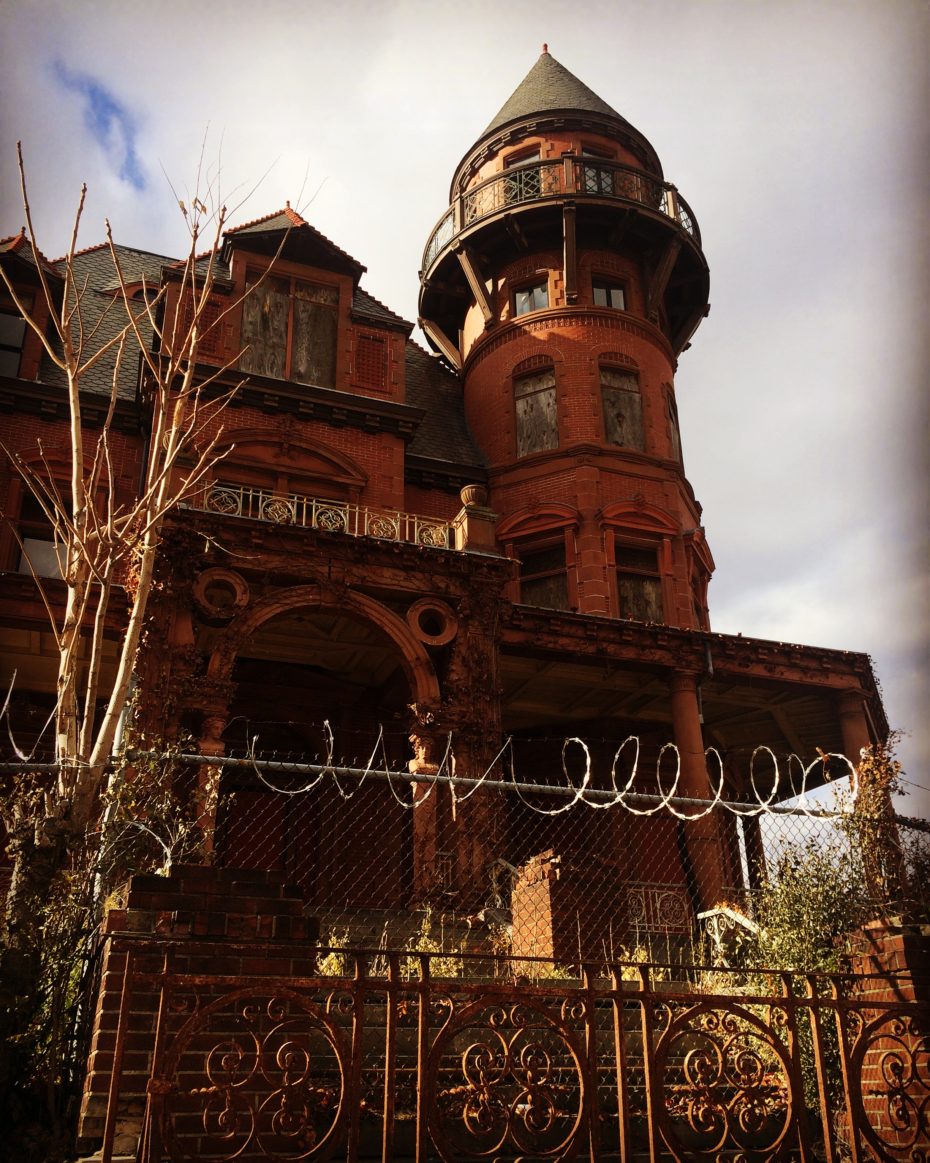
©Luke J Spencer
Ever since, perhaps the most beautiful mansion ever built in New Jersey has gradually fallen apart, being slowly reclaimed by nature. Today it rests as a silent sentinel on hilltop, over looking a city that has shared its same sad fate.


